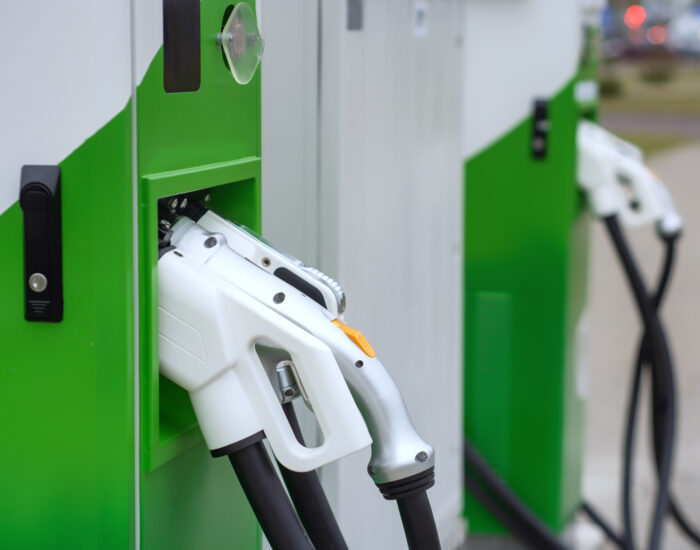As electric vehicles (EVs) become more popular, having a reliable home charging solution is essential. Choosing the right EV charge point can be a daunting task given the variety of options available. This guide aims to simplify the process by exploring key factors to consider, different types of chargers, installation requirements, and the benefits of partnering with AOneContracts Limited for your EV charging needs.
Understanding Your EV Charging Needs
Before selecting an EV charge point, it’s crucial to understand your specific charging needs. Consider the following factors:
- Driving Habits: How far do you drive each day? Your daily mileage will influence the type of charger you need. If you drive long distances, a faster charger might be necessary.
- Vehicle Specifications: Different EVs have varying charging capabilities. Check your vehicle’s maximum charging rate to ensure compatibility with the charger.
- Home Electrical Capacity: Your home’s electrical system must be able to support the charger. It may be necessary to upgrade your electrical panel to accommodate a higher power charger.
Types of EV Charge Points
EV charge points are generally categorized into three types: Level 1, Level 2, and Level 3 (DC Fast Chargers). For home use, Level 1 and Level 2 are the most common.
Level 1 Chargers:
- Voltage: 120 volts
- Charging Speed: Adds about 3-5 miles of range per hour
- Best For: Plugging into a standard household outlet, ideal for overnight charging or low daily mileage.
- Pros: Easy to use, no installation required.
- Cons: Slow charging speed, not suitable for high mileage drivers.
Level 2 Chargers:
- Voltage: 240 volts
- Charging Speed: Adds about 20-30 miles of range per hour
- Best For: Faster charging at home, suitable for most EV owners.
- Pros: Faster charging, more efficient for daily use.
- Cons: Requires professional installation, higher upfront cost.
Level 3 Chargers (DC Fast Chargers):
- Voltage: 480 volts
- Charging Speed: Adds about 60-80 miles of range in 20 minutes
- Best For: Public charging stations or commercial use, not typically used in residential settings.
- Pros: Very fast charging.
- Cons: Expensive, requires significant electrical infrastructure.
Key Features to Look For
When choosing an EV charge point, consider the following features:
- Power Output: Ensure the charger’s power output matches your vehicle’s charging capacity.
- Smart Features: Some chargers come with Wi-Fi or Bluetooth connectivity, allowing you to monitor and control charging via a mobile app.
- Cable Length: Choose a charger with a cable length that suits your parking setup.
- Durability: Look for weatherproof and durable chargers, especially if installed outdoors.
- Safety Features: Ensure the charger has built-in safety features such as overcurrent protection and temperature monitoring.
Installation Requirements
Proper installation is crucial for the safe and efficient operation of your EV charge point. Here are the steps involved:
- Site Assessment: A qualified electrician will assess your home’s electrical capacity and the best location for the charger.
- Electrical Upgrades: Upgrading your electrical panel may be necessary to support a Level 2 charger.
- Installation: The electrician will install the charger, ensuring it is properly connected to your home’s electrical system.
- Testing: After installation, the charger will be tested to ensure it operates correctly and safely.
Benefits of Choosing AOneContracts Limited
Partnering with AOneContracts Limited for your EV charge point installation offers numerous benefits:
- Expertise: Our team of experienced electricians and engineers ensures your charger is installed safely and efficiently.
- Quality Products: We provide high-quality, reliable chargers that meet all safety standards.
- Comprehensive Service: From site assessment to installation and maintenance, we offer a complete solution.
- Customer Support: Our dedicated customer support team is available to assist you with any questions or issues.
Contrary to popular belief, Lorem Ipsum is not simply random text. It has roots in a piece of classical Latin literature from 45 BC. John Deo, CEO Teqo
Conclusion
Choosing the right EV charge point for your home involves understanding your charging needs, selecting the appropriate charger type, and ensuring proper installation. By considering factors such as driving habits, vehicle specifications, and home electrical capacity, you can make an informed decision. Partnering with AOneContracts Limited guarantees a seamless installation process and reliable, high-quality charging solutions.


Contact us today to learn more about our EV charging services and how we can help you transition to a greener future.


